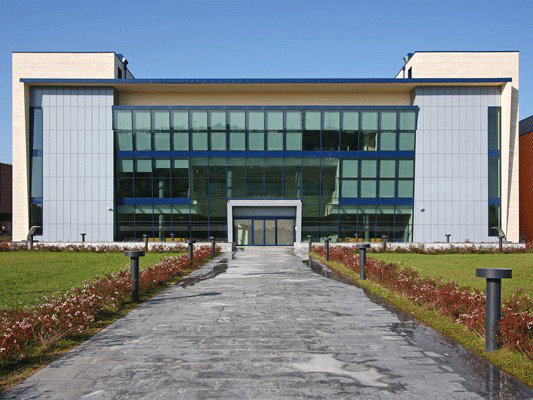
2006
CNAO - NATIONAL CENTRE OF ONCOLOGY AND HADRONTHERAPY
First italian Health Center for the Cancer Hadron Therapy in Pavia
- Detailed project for tender and verification of construction design for MEP systems,
- Construction supervision for the MEP systems;
- Safety coordination during construction

Client
Fondazione CNAO
Intervention typology
Construction
Project Area
HEALTHCARE
Value
35.5 Million €
Location
PAVIA
Years
2003-2006
Concept Design
Studio Calvi Ingegneria
Numbers
Surfaces
19 500 m2 – Gross floor area
Certifications and Sustainability Goals
Credits
In partnership with
The Foundation CNAO is the first Italian center for the medical use of ionizing radiation for cancer treatment (hadron therapy). The Foundation is also a Centre of Research and Development, whose activities range from clinical research, to radiobiological and translational research, and so on. The complex is located in an area of about 40.000 square meters, on the northern edge of the town of Pavia, in the locality Cravino, where the major hospitals and scientific institutions of the city are concentrated, including also the San Matteo Hospital. The land plot is functionally divided into two parts: the main building is sited in the south-eastern part, while the north-western part, purely technological, is occupied by the station for the transformation of electricity (high / medium voltage ), by the building containing the particle accelerator (protons and ions) for the treatment of tumors, which has a surface of about 1600 square meters, and by the technological stations to serve it. The CNAO’s high technology is formed by a set of accelerators and transport lines of the particle beams. The most important accelerator is the synchrotron, a prototype result of research in high energy physics, made possible thanks to the collaboration of the National Institute of Nuclear Physics (INFN), CERN (Switzerland), GSI (Germany), LPSC (France) and the University of Pavia, mainly produced with Italian technology. The synchrotron is a “donut” 80 meters long with a diameter of 25; the particle beams born in two areas inside the circumference and are then sent to one of three treatment rooms. Above the central hall is a magnet that weighs 150 tons, which serves to bend 90 degrees the particle beam and directing it from above on the person being treated. The main building consists of a basement, where there are rooms for treatment services in nuclear medicine and that is connected to the synchrotron, and three floors above ground, which host the areas of diagnostic radiology and scientific laboratories, the administrative and the technical areas.










